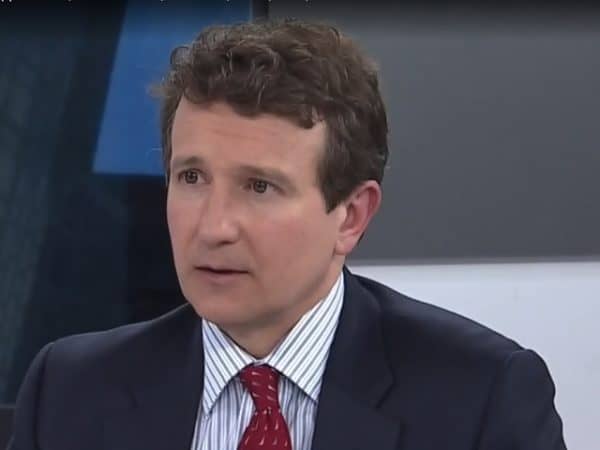

With all the talk of recession these days, investors may be looking for safe places to duck and cover, and while the airlines probably aren’t your first thought. But you may want to consider Chorus Aviation (Chorus Aviation Stock Quote, Chart, News TSX:CHR), says portfolio manager Alex Ruus, who thinks that the company has stability in places where other airlines might not.
“I think this stock is a buy here,” said Ruus of Arrow Capital Management to BNN Bloomberg on Monday. “On the potential for a slowdown in the economy, usually airlines tend to do poorly in that environment because they’re a high fixed cost business. Chorus is a bit of an exception in that their business model is changing over time.”
“I would characterize them as half-airline, half-aircraft lessor,” he says. “They have a very big aircraft leasing business and they’re the number two carrier in regional planes. They own turboprops, Q400s and ATRs in the regional jet segment. That business they just started into a couple of years ago and they’re growing it solidly, and I think that they’ve got a good team to build that business.”
“The other part, the airline business, they provide service for Air Canada, and relative to other airline business it’s a much steadier, stable business and so they have very stable, predictable free cash flow and that’s why they’re able to pay big dividends,” Ruus says.
Chorus, which currently offers a dividend yield of 6.5 per cent, saw its share price drop earlier this month on its quarterly earnings report, which featured a year-over-year decrease in revenue from $354 million to $333 million, a 6.0 per cent decline, while adjusted EBITDA grew from $84 million a year ago to $85.7 million.
With the second quarter release, CEO and president Joe Randell emphasized the traction that Chorus is gaining in the regional aircraft leasing space.
“Since the launch of Chorus Aviation Capital in early 2017, we have built our portfolio to an impressive 56 aircraft, 13 of which we expect will deliver in the third quarter, two in the fourth quarter with the remaining aircraft by the end of 2020. When combined with the aircraft lease commitments under the CPA, our fleet of leased aircraft reaches a value of over US$2.0 billion with US$2.0 billion in future contracted lease revenue,” said Randell.
On a downward trend for much of 2018, Chorus’ share price started climbing early in the new year, due in part to the company’s new agreement with Air Canada, signed in January. Air Canada had made moves of late to expand its own discount airline Rouge and potentially stand in competition with Chorus’ Jazz Aviation, but the new deal perhaps put some of those fears to bed, as it involved extending Air Canada’s contract with Chorus for another ten years and adding a further $940 million in aircraft leasing over the now full 17 years of the agreement.
“In a downturn, if you want to be in an airline type of investment, this is the type of thing you want to be in,” says Ruus. “Air Canada has a lot more operating leverage to it, so when things are going really well, it’ll go up a lot but if we go into a recession, I almost guarantee it’ll go down because of the operating leverage. And you don’t have a dividend to support you there.”
Chorus’ share price hit a high of $9.86 in January 2018 but has been trading in the mid-$7.00 range for much of 2019.
Leave a Reply
You must be logged in to post a comment.




 Share
Share Tweet
Tweet Share
Share




Comment